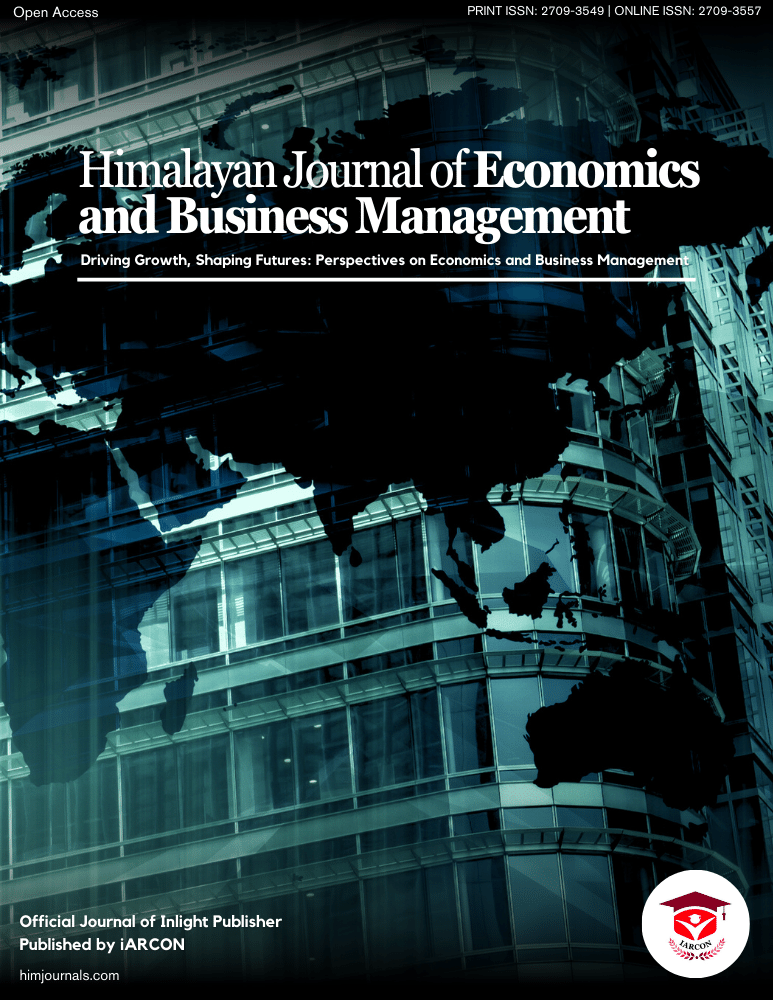Indonesia has a large number of Internet users, and its penetration rate is increasing. Significant segments of the population now use the internet on a daily basis to access various online services and platforms. In recent years, there has been a tremendous increase in Internet usage in Indonesia, driven by the rapid development of digital technology and the acceptance of more commercial digital activities. With the government's emphasis on increasing Indonesia's economic growth and digital transformation, there has been a growing emphasis on connecting Indonesian Internet users with the benefits of economic digitalization, which is anticipated to increase demand for cloud services and cloud capacity. According to a recent report by the Ministry of Communication and Information Technology in Indonesia, the number of Internet users in the country will reach more than 180 million by 2023 [8]. This substantial user base signifies a large and vibrant market for digital services, including cloud-based solutions. With ongoing efforts to empower businesses in all sectors, the Indonesian government aims to create an enabling environment for internet consumers to take advantage of the digitalization of the economy, increasing their productivity and competitiveness.
According to a recent report by the Ministry of Communication and Information Technology in Indonesia, the number of Internet users in the country will reach more than 180 million by 2023 [8]. This substantial user base signifies a large and vibrant market for digital services, including cloud-based solutions. With ongoing efforts to empower businesses in all sectors, the Indonesian government aims to create an enabling environment for internet consumers to take advantage of the digitalization of the economy, increasing their productivity and competitiveness.
TNT is a global professional services company with more than 10,000 people in 50 countries. TNT works closely with clients across the real estate, infrastructure, and natural resources sectors, specializing in core programs, program management, cost and commercial management, net zero, and digital solutions. The client is MS, and the program, Empowering Indonesia's Digital Economy, aims to accelerate Indonesia's economic growth and digital transformation. The corporation will build its first server area in Indonesia, where it will provide leading cloud services and train three million people. The investment is expected to generate $6.3 billion in revenue and 60,000 new employees in the region. MS has invested in Indonesia's development by focusing on digital transformation and empowering businesses in all sectors. If there is a nearby server region, companies can take advantage of cloud services and store data faster. In addition, MS will continue to assist individuals in acquiring digital skills, and by the end of 2021, more than 24 million Indonesians will do so. The new data center region is the largest cloud infrastructure component in the world, which now consists of more than 60 data center regions. In collaboration with universities and the Ministry of Communication and Information, an additional three million people will be trained in cybersecurity and data science as part of this plan. This comprehensive project intends to accelerate digital agility and transform Indonesia into Southeast Asia's top digital economy while equipping its workforce with skills for the future.
To support this digital transformation, major cloud service providers have expanded their presence in Indonesia. For example, MS, as mentioned in the background section, established its first server area in the country to provide leading cloud services [9]. This expansion will not only improve the accessibility of cloud services for Indonesian internet consumers, but also facilitate data storage and processing within the country, resulting in improved data speed, reliability, and security. This increase in cloud capacity is expected to revolutionize the way businesses operate in Indonesia. MS is currently developing the 9.6 MW Ballard Data Center Project in West Java, Indonesia, and has appointed TNT as a project management consulting firm for project and cost management. LCI is assigned as the General Contractor (GC) responsible for executing the project from the engineering phase to the commissioning and handover phases. According to the approved baseline, the project intends to reach the Integration System Test (IST) milestone by August 31, 2022. Continuous efforts to bridge the digital divide and empower internet consumers in Indonesia are critical to the nation's economic growth and competitiveness. By fostering a supportive environment for digitalization, Indonesia paves the way for a future where all individuals can fully participate in and benefit from the digital economy.
TNT is a multinational professional services firm headquartered in Leeds, England. The company specializes in program management, project management, cost management, and consulting across the property, infrastructure, and natural resources sectors. TNT, founded in 1946 as a single quantity surveying partnership in the UK, has grown to become a leading global programme management and construction consultancy with 112 offices in 45 countries. As with any organization, TNT may face a variety of personnel-related business issues. TNT values transform performance and help people live their goals every day.
The symptoms or gaps identified in the scope of this final project center on delays in project delivery and challenges in the commissioning process. Some of the problems include lack of competence, inadequate project management capabilities, inadequate communication and collaboration between expats and local employees, and the impact of cultural differences and language barriers on teamwork and project performance. These symptoms indicate the need to improve employee competence and engagement to address the causes of delay. By improving project management skills, fostering effective communication and collaboration, and promoting cultural sensitivity, the goal is to reduce delays, improve commissioning processes, and improve overall project performance within data center projects. This final project explores strategies and interventions to address these symptoms and close the gap, contributing to more successful project outcomes. Project performance management is broken down as follows in the Figure 1 below:
The S-curve of project progress indicates that the project has regressed, with work falling behind schedule as a result. Actual progress is only 86.74 percent, with a base variance of -13.26 percent, but planned progress is 100 percent, meaning that all milestones should have been reached. It was determined that delayed progress in the commissioning process was a major contributor to this deterioration in quality. There are three stages in the commissioning process: Level 1 Commissioning (identified by the CxL1-red tag), Level 2 Commissioning (identified by the CxL1 yellow tag), and Level 3 Commissioning (identified by the CxL1-green tag). Before moving on to the IST phase, commissioning procedures must be successfully completed for all data center equipment that has been installed. The decline in project performance is due to the activities stated in Figure 1 as the cause of the decline. The completion of commissioning work in this case is defined as essential for carrying out the IST (Integrated System Test), and this activity has led to its downfall. This can be shown by referring to the graph showing CxL2 -21.2% behind schedule, CxL2 -17.7% behind schedule, and CxL3 has not yet started inspection tests.
The key performance indicators (KPI) shown below make it clear that GCs face complex challenges:
Figure 1: S Curve of Physical Development as of July 31, 2023. Internal Data Sources

Figure 2. RET Report as of July 28, 2023 – Internal Report

Figure 3. Management observation-based Fishbone diagram for root cause analysis
This is in connection with the approved baseline, which stipulates that CxL1 should be completed by June 15, 2023, CxL2 should be completed by July 4, 2023, and CxL3 should be completed by July 21, 2023. These dates are specified in the approved outline. In comparison, GC only resolves 96% of CxL1, with 24 red tags still in circulation; 22% of CxL2, with 446 yellow tags still in circulation; and CxL3, where no progress was made. Before starting the commissioning process of the system, the construction and installation phase must be completed successfully, during which time all active equipment must be installed correctly according to the researched design. It is possible that employees do not have the necessary technical skills and competencies to effectively install equipment and troubleshoot problems that cause delays or even require additional work during the building and installation phases. Inadequate capabilities in project administration have also been identified as a contributing factor to delays. It is possible that employees working on projects related to data centers will struggle with project management skills such as task planning, organization, and coordination. In terms of employee engagement, inadequate communication and collaboration between expats and local employees or workers result in misunderstandings and various cultural norms at the beginning.
For some reason, differences in how things work and lack of trust result in a variety of problems, including poor quality work, missed deadlines, safety hazards, and cost overruns. Business issues can affect many stakeholders. MS faces delays in project delivery, potentially impacting its revenue generation and ability to meet its commitment to train three million people. LCI, as the General Contractor, is responsible for executing the project and may face challenges related to project management, resource allocation, and coordination. Employees and workers involved in a project may struggle with technical skills, project management capabilities, and effective communication and collaboration, which can affect project progress and quality. Expats and local staff face cultural differences and language barriers that hinder effective teamwork and lead to misunderstandings. The main problem identified was the commissioning process, which caused significant delays. Internal project delays are caused by lack of stakeholder engagement and employee skills. People-related factors include lack of technical skills, inadequate training programs, and cultural differences. Process-related problems include ineffective planning, poor communication, and inadequate risk management.
Equipment challenges include availability, maintenance, and suitability. Material-related issues relate to procurement, quality control, and estimates. Environmental factors include external influences and inadequate infrastructure. Finally, management issues include resource allocation, oversight, project monitoring, change management, and stakeholder engagement. Addressing these factors is critical to reducing delays and improving the efficiency of project delivery.







